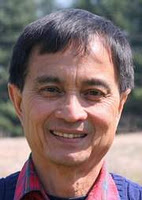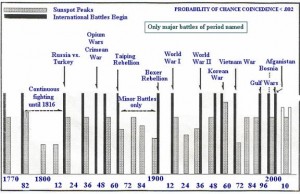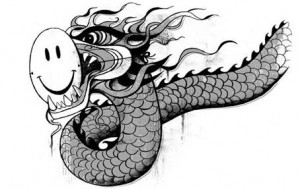Researches
now browsing by category
How China can defeat America
The New York Times, Op-Ed Contributor
By YAN XUETONG
Published: November 20, 2011
It was perhaps the greatest period for Chinese thought, and several schools competed for ideological supremacy and political influence. They converged on one crucial insight: The key to international influence was political power, and the central attribute of political power was morally informed leadership. Rulers who acted in accordance with moral norms whenever possible tended to win the race for leadership over the long term.
- Times Topic: International Relations
WITH China’s growing influence over the global economy, and its increasing ability to project military power, competition between the United States and China is inevitable. Leaders of both countries assert optimistically that the competition can be managed without clashes that threaten the global order.
Most academic analysts are not so sanguine. If history is any guide, China’s rise does indeed pose a challenge to America. Rising powers seek to gain more authority in the global system, and declining powers rarely go down without a fight. And given the differences between the Chinese and American political systems, pessimists might believe that there is an even higher likelihood of war.
I am a political realist. Western analysts have labeled my political views “hawkish,” and the truth is that I have never overvalued the importance of morality in international relations. But realism does not mean that politicians should be concerned only with military and economic might. In fact, morality can play a key role in shaping international competition between political powers — and separating the winners from the losers.
Singapore pledges S$50m to narrow ASEAN gap
The IAI aims to help member states such as Cambodia, Laos, Myanmar and Vietnam narrow the development gap to achieve the vision of an ASEAN Community
by 2015. Giving an overview, Mr Lee noted the global economy remained vulnerable with problems in the European Union and the US economy still weak with low growth and
low unemployment. He said ASEAN must cooperate to weather the storm. He said this can be done in three ways – achieving the vision of an ASEAN Community by 2015, enhancing ASEAN connectivity and strengthening links with the rest of the world.
Singapore pledges S$50m to narrow ASEAN gap
By S Ramesh |
BALI, Indonesia: Singapore announced an extension of its contributions to the Initiative for ASEAN Integration (IAI) for another four years from 2012 to 2015,
totalling S$50 million.
Revealing this during the plenary session of the ASEAN Summit in Bali, Prime Minister Lee Hsien Loong said this will be the country’s fourth pledge to the IAI.
CAMBODIA: Something is happening among Cambodians on which democrats can build
FOR PUBLICATION
AHRC-ETC-051-2011
November 15, 2011
 An article by Dr. Gaffar Peang-Meth published by the Asian Human Rights Commission
An article by Dr. Gaffar Peang-Meth published by the Asian Human Rights Commission
CAMBODIA: Something is happening among Cambodians on which democrats can build
In my column in this space in August, “A look at the future of Cambodia’s youth and education,” I posited that, “If youth is the future of the country and education is a sine qua non element of a country’s development, without change in the status quo ante, Cambodia’s future will be anything but bright.” In my concluding sentence, I suggested that, “Broad-based application of Buddhist values and principles can help Cambodian society make its way to a future those on the current path may never find.”
Then last month, in my column, “Perhaps Cambodians’ soft power will advance their struggle for rights and freedom,” I noted with relief that I may have overlooked what could be a promising trend in Khmer behavior.
The 2000-year-old Khmer tradition in “smoh trang, korup, bamroeur, karpear” (“to be loyal to, to respect, to serve, to defend”) the divine leader (king) that has boxed in Cambodians’ creative thinking, has not disappeared. Rather, more Cambodians are developing self-awareness; find ease in speaking openly, even if what they say is not popular; and are demonstrating analytical, rational, and thoughtful voices in their writing.
I noted this apparent “new trend” stands opposed to the existing profane “free expression” that has polluted public discourse among Cambodians. In my September article, I referenced an e-mail from a Khmer reader, Samreth, who is disgusted at the lack of civility and rational discussion in the contemporary Cambodian environment. He suggested that in order to rebuild a respected and respectable society Khmers need “individuals with quality thoughts.” Samreth sees what is and contemplates on what ought to be.
American children who are taught in their own history of the inalienable rights to life, liberty and the pursuit of happiness do not hesitate to fight against any threat to those inalienable rights, whether a Republican or a Democrat is in power. Why do Cambodians seem not to have the capacity to transfer the 2,000-year-old diktat of duties and responsibilities of citizens to the divine leader or god-king to ideas, ideals, principles and concepts of rights, freedom and democracy? Man dies. Ideas, ideals, principles don’t die.













